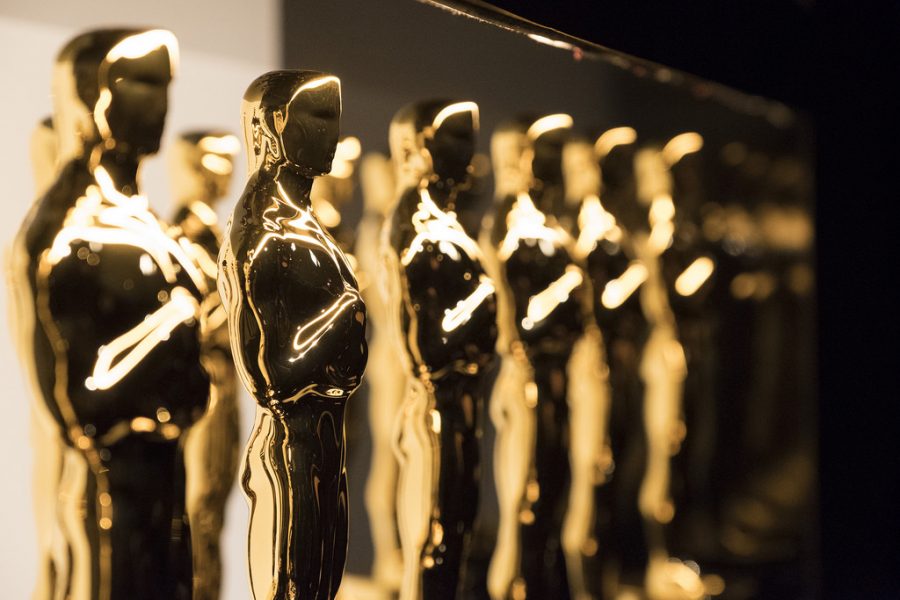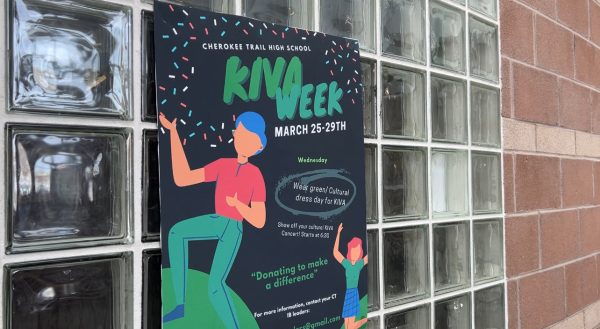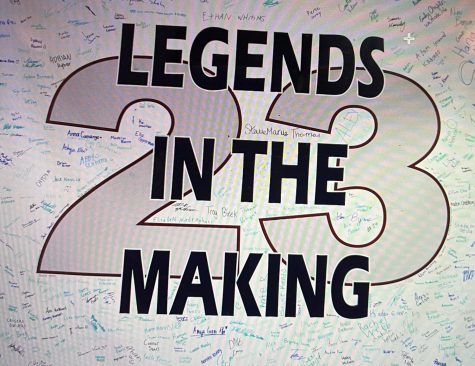The Oscars: A Night of Successes and Failures
The Oscars are an annual event, celebrated by actors, directors, and viewers alike all over the globe. Arguably, the Oscars are the pinnacle of American filmmaking, awarding the previous’ year’s movies’ successes according to a system of film-knowledgeable voters submitting who they believe earns the award in different categories such as Best Picture, Best Adapted Screenplay, and many others. Photo courtesy of Disney ABC Television Group (CC BY-ND 2.0)
April 15, 2019
The Oscars are a night of glitz and glam, a showcase of the stars’ wealth and connections, as well as their on-camera prowess. It’s a night to recognize the back-breaking work of actors, actresses, directors, producers, set directors, and many other roles that all blend together to create emotionally charged pieces that can move an audience to laugh, cry, or shout.
But do the Oscar awards themselves actually represent a true pinnacle of acting perfection?
Certain credible news sources like USA Today and The Telegraph claim that this year, the Academy botched the recipients of the prestigious Oscar award.
Green Book, a classically heartwarming tale of how the gap between whites and blacks in the 60s was bridged by the power of music in overcoming ignorance, won the 2019 Oscar for Best Picture. Directed by Peter Farrelly, the movie has been clumped together with films like Driving Miss Daisy, a 1989 movie where Morgan Freeman or “Hoke Colburn” chauffeurs Jessica Tandy’s character “Daisy Werthan,” and Crash, connecting several stories of people of different races dealing with the aftermath of 9/11. Driving Miss Daisy won four Oscars at the 1990 Academy Award Ceremony, in the categories of Best Picture, Best Actress, Best Adapted Screenplay, and Best Makeup, and the cast and crew of Crash walked away from the 2006 Academy Awards with three Oscars for Best Picture, Best Original Screenplay, and Best Film Editing.
This year at the 2019 Oscars, Green Book made off like a bandit, with three Oscars for Best Picture, Best Supporting Actor, and Best Film Editing. However, Green Book has been met with either cool responses or fiery rage at its win for Best Picture, considering its striking similarities to Driving Miss Daisy and Crash, and the way that the film hasn’t broken boundaries like BlacKkKlansman, Roma, or any of the other envelope-pushing nominees. USA Today’s Brian Truitt said, “The newest best picture’s victories didn’t go over all that well… ‘Green Book’ filmmakers were met with an underwhelming response after winning for original screenplay, and it didn’t get much more rousing when they won the night’s main prize.”
In fact, Green Book and its win were so offensive that Spike Lee, the Oscar-award winning director of BlacKkKlansman, was seen attempting to leave the Dolby Theater after Best Picture was announced. “I thought I was courtside at the Garden. The ref made a bad call,” said Lee after his dramatic protest.
The film features Viggo Mortensen and Mahershala Ali, the latter of whom won Best Actor in a Supporting Role, his second win in the same category. Mortensen was rumored to have been out of the running for Best Actor after he said the n-word at a Film Independent Presents screening at the Arclight Hollywood on November 7, 2018, while promoting Green Book. “For instance, no one says n— anymore,” Mortensen said, discussing the gaps in racism in the 60s and racism now.
While Mortensen has apologized for saying the racial slur, his shot at being voted in for Best Actor may have been dimmed. “I wouldn’t say at this point his chances are hurt, because of how fast this went away, but don’t forget that the demographic within the Academy has changed, and is changing,” said an anonymous veteran film executive, a weathered Oscar voter.
But Mortensen’s slip-up wasn’t the only thing that critics claimed were damaging Green Book’s shot at an Oscar. Nick Vallelonga, co-writer and producer of Green Book claims, “Everything in the film is true. The only creative license we took was combining some stories… But everything was true, and that was really important to me and Pete the director, that we told the truth.” Nick Vallelonga is the nephew of the main character of Green Book, Tony “Lip” Vallelonga, and was awarded an Oscar for his involvement in the film.
The family of Don Shirley, Ali’s character, disputes Vallelonga’s claim. “There was no due diligence done to afford my family and my deceased uncle the respect of properly representing him, his legacy, his worth and the excellence in which he operated and the excellence in which he lived. It’s once again a depiction of a white man’s version of a black man’s life,” said Carol Shirley Kimble, the niece of Mahershala Ali’s character, Don Shirley. “My uncle was an incredibly proud man and an incredibly accomplished man, as are the majority of people in my family. And to depict him as less than…is insulting, at best.”
And not only did the Academy supposedly screw up the winner of Best Picture, but the winner of Best Actor was also skewed. Rami Malek went home with that particular Oscar after his performance as Freddie Mercury in the biopic about the band Queen in the 70s, Bohemian Rhapsody. The Telegraph’s Robbie Collin said, “[Malek]’s Freddie Mercury is not good at all: clothes aside, he doesn’t look like the iconic Queen frontman, nor sound like him either, except while lip-synching to a tape of Mercury’s own vocals. The accent is wobbly, the stage presence stilted and sweatless, the prosthetic teeth a joke-shop embarrassment. Even the film itself seems unconvinced…you’d be hard-pushed to find a single scene…that would explain over the course of a minute or two his history-making victory last night.” Kaleigh Wossilek (11) disagrees. “I really like Queen and Rami Malek. I feel that the film did a really good job of portraying the band’s story.”
There’s more! Best Actress was awarded to Olivia Colman, who was nominated for her leading role in The Favourite alongside Rachel Weisz and Emma Stone. Her acceptance speech was muddled with tears and to some, endearingly speechless, and to others, obnoxiously underprepared. It was clear to all who watched that Colman did not expect to win, and why should she? Her competitors were Yalitza Aparicio, starlet of Roma directed by Alfonso Cuaron (who went home with three Oscars for his trouble), Melissa McCarthy, a newly serious actress of Can You Ever Forgive Me?, Rachel Weisz, also acting in The Favourite, and Glenn Close, the lead in The Wife. Close was the predicted winner, mainly because this most current nomination is her seventh nomination total. Seventh. “[Her loss came] even after Close won Critics’ Choice, Golden Globe, and SAG awards. Only one other actress and two actors have ever won all three of those precursors and then lost at the Oscars. Going into the night, the 71-year-old was already the most Oscar-nominated living performer, male or female, without a win, and now extends that undesirable record by losing for the seventh time,” said The Hollywood Reporter. “How did this happen? It’s impossible to say for sure, of course, but it likely has to do with the number of Academy members who actually saw Close’s film versus Colman’s.” The campaigning of The Favourite blew The Wife’s publicity stunts out of the water. Simply put, Colman’s work, with 10 Oscar nominations, was viewed more than Close’s, with only 1 nomination.
However, while a handful of winners were hotly debated, there were obvious shoo-ins, such as Lady Gaga’s Oscar win in Best Original Song for her hit song, “Shallow,” sung by her and Bradley Cooper in the 2018 remake of the classic A Star Is Born. Regina King, straight off of her Daytime Emmy Award for Seven Seconds in 2018, won Best Actress in a Supporting Role for her stunning acting in If Beale Street Could Talk. Black Panther went home with Best Costume Design, Best Original Music Score, and Best Production Design, breaking even more film barriers by having the first African-American woman to win Production Design, Hannah Bleacher.
In conclusion, the changing demographics of the Oscars, from increasingly more liberal voters to younger Academy members who are suspected to not prioritize watching all of the nominees in a category before voting, led to a round of winners who faced public and professional backlash and outrage for their recognition with the prestigious gold award.
Can we just talk about the onstage chemistry between Lady Gaga and Bradley Cooper? The dynamic duo sang their Oscar-winning song “Shallow” during the awards ceremony, and the crowd (at the Dolby Theater and online) went crazy for the passionate eye contact and incredibly comfortable or (dare we say it) flirtatious body language of the pair. One Twitter user commented, “I’m not crying, you’re crying. I swear Bradley Cooper and @LadyGaga performing ‘Shallow’ has me bawlin’ crocodile tears right now!” Their movie A Star Is Born was nominated for seven Oscars, including Best Picture and Best Actor in a Leading Role. Wossilek said, “The storyline and the characters themselves had a lot of depth and I think it told a very raw and real tale that a lot of people could relate to.”
Despite the conflict of “unjust” winners and “more deserving” nominees, the Oscars had many highlights, including the hilarious trio of Maya Rudolph, Tina Fey, and Amy Poehler who opened the night with lots of laughs, Jason Momoa in a pink crushed velvet suit (insert heart eyes here), and Melissa McCarthy and Brian Tyree Henry in truly ridiculous Mad Hatter-esque gowns covered in small animal puppets. While you may side with Spike Lee on the flop of Best Picture, no one can deny the raw entertainment and powerful recognition the Academy Awards provide each year.














